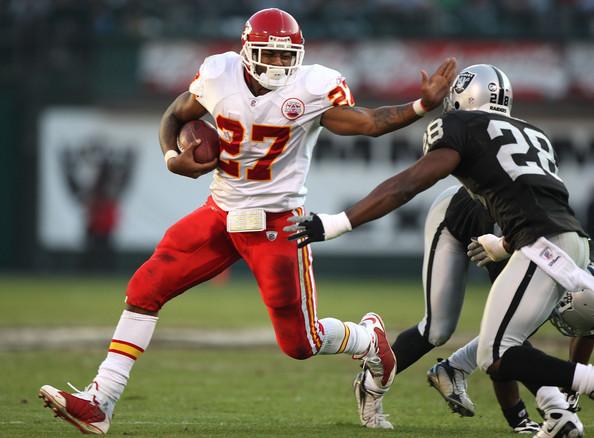Medical researchers studying CTE, or chronic traumatic encephalopathy, are working to learn more about this degenerative brain disease. While definitive diagnosis is currently only possible post-mortem, the study of this ever-more visible disease includes the push to learn about its presence in the living.
The recent revelations from Larry Johnson, a 38-year-old former NFL running back, who says he thinks he's currently experiencing symptoms of CTE, may shed light in that regard.
Or – depending on one's skepticism, and the belief not to rely too much on anecdotal observations – it may not.
The latest on this disease came earlier this week when, during an interview with the Washington Post, Johnson said he was experiencing, among other things, mood swings, rages of violence, forgetfulness, anxiety, headaches and suicidal impulses – all symptoms commonly displayed by previous CTE victims prior to death.
Playing football his entire life, piling up blows to the head at every level, including at Penn State where he was a Heisman Trophy finalist, Johnson played in the NFL from 2003 to 2011. (Considered extremely durable, in 2006 he carried the ball 416 times, setting an NFL record.)
 A month ago, when visiting a rooftop deck at a friend's apartment building, he had the urge to jump.
A month ago, when visiting a rooftop deck at a friend's apartment building, he had the urge to jump.
“They say when you die you feel that euphoric feeling,” Johnson told the Post in the detailed, excellent profile. Speaking about voices in his head he calls demons, "One is telling you to do it; one is telling you don’t. One is telling you it’d be fun.”
So now that society is more aware of CTE and how it manifests itself, and individuals who may be at risk can now begin to assess themselves, what do we do with information like this?
Is it meaningful, or meaningless?
As for recent advances on CTE, with an eye on possibly being able to someday diagnosis the disease in those still alive, here's a recent article. Last month, research focusing on the brain of Fred McNeill, the late NFL linebacker, was viewed as a breakthrough of sorts.
In considering the implications of this news, a few questions come to the fore:
- What should Johnson do?
- Is the NFL responsible in any way?
- Should the league now be helping him – or asking Johnson to provide his insight, which might prove valuable to current and future NFL players?
What do you think should be done? It's uncharted territory. Please share your thoughts in the comment section below.




